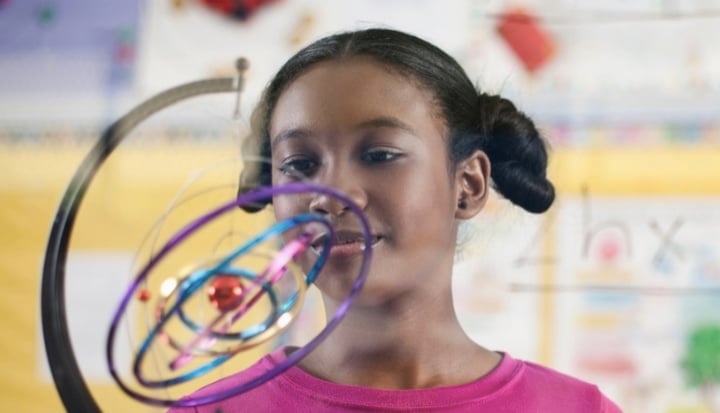When women are given greater opportunity to participate in the labour force, economies grow, and societies prosper. But until now, very little research has gone into the economic potential of girls, in particular, adolescent girls, in achieving growth and prosperity. New research from Citi Global Perspectives & Solutions (Citi GPS) and Plan International shows that when 100% of girls complete upper secondary school by 2030, GDP in emerging economies is lifted by 10% on average compared to a business-as-usual scenario. Even greater economic returns would be observed beyond 2030, as the benefits are strongly cumulative. The results are staggering, especially when faced with the consequences of inaction. Given that more than 130 million girls worldwide were out of school before the COVID-19 crisis, and UNESCO estimating that over 11 million girls may not go back after the crisis, these interventions are vital.
“COVID-19 recovery plans that prioritise investment in girls’ education and well-being will help communities and economies build back better and stronger,” said Anne-Birgitte Albrectsen, CEO of Plan International.
The joint report, The Case for Holistic Investment in Girls – Improving Lives, Realizing Potential, Benefitting Everyone, is one of the most holistic data sets yet that analyses the economic and social benefits of investing in adolescent girls and young women. The report reveals that a total investment of just $1.53 per day per girl in emerging economies would have a huge impact on countries’ overall economic potential. We believe these investments yield triple societal benefits: for girls today; for the adults they will be tomorrow; and for the next generation raised by empowered parents.
“The special value of the collaboration between Citi and Plan International comes through bringing together the economic and social case, and presenting a solid multi-component investment case,” said Andrew Pitt, Global Head of Research Citi.
Adolescent girls everywhere, especially in developing economies, encounter barriers in accessing and completing quality education, becoming economically independent, participating in the labour force, and living a healthy life free from violence. It is vital to commit to combatting all barriers that hold girls back; from physical violence and psychological abuse to child and early forced marriage, early pregnancy and a lack of educational opportunities. The recognition that all areas of a girls’ life are interlinked will enable interventions to be planned accordingly.
Figure 1: The Girls’ Plan

The report concludes that investing in the development of adolescent girls will have positive implications across the global goals beyond SDG 5 – gender equality – and is in fact key to achieving sustainable development overall. The importance of girls’ education and empowerment has been linked to several SDGs including reducing conflict, achieving clean water and sanitation as well as tackling climate change.
The holistic investment in girls has been shown to lead to significant increases in the GDP of emergent economies. The case has thus been made for a multi-pronged intervention and investment approach that can deliver the best outcome for girls’ development, which doesn’t just change their life trajectory but can help developing economies pivot to stronger growth trajectories. This is more important than ever as countries around the world are putting together COVID-19 recovery plans. To deliver substantial economic benefits and unparalleled impacts across generations and societies, the answer is simple: invest holistically in the development of girls.
Making it happen: what is the role of business?
Structured collaboration between the private sector, NGOs, philanthropic institutions, and governments will be paramount to effectively tackle the barriers that adolescent girls are facing.
Areas where companies can act include:
- Collaborating with NGOs who understand the specific needs of girls, and can bring access to communities.
- Providing capital and support for initiatives that advance girls’ empowerment, for example, financial literacy programmes, and improving access to products and services.
- Supporting girls and young women in their career development through outreach and mentorship programmes.
- Implementing gender equality policies and strategies within their own organisations
- Fostering social norm change.
For more information on Plan International’s work with girls please visit our website, and to learn more about Citi GPS please click here.










